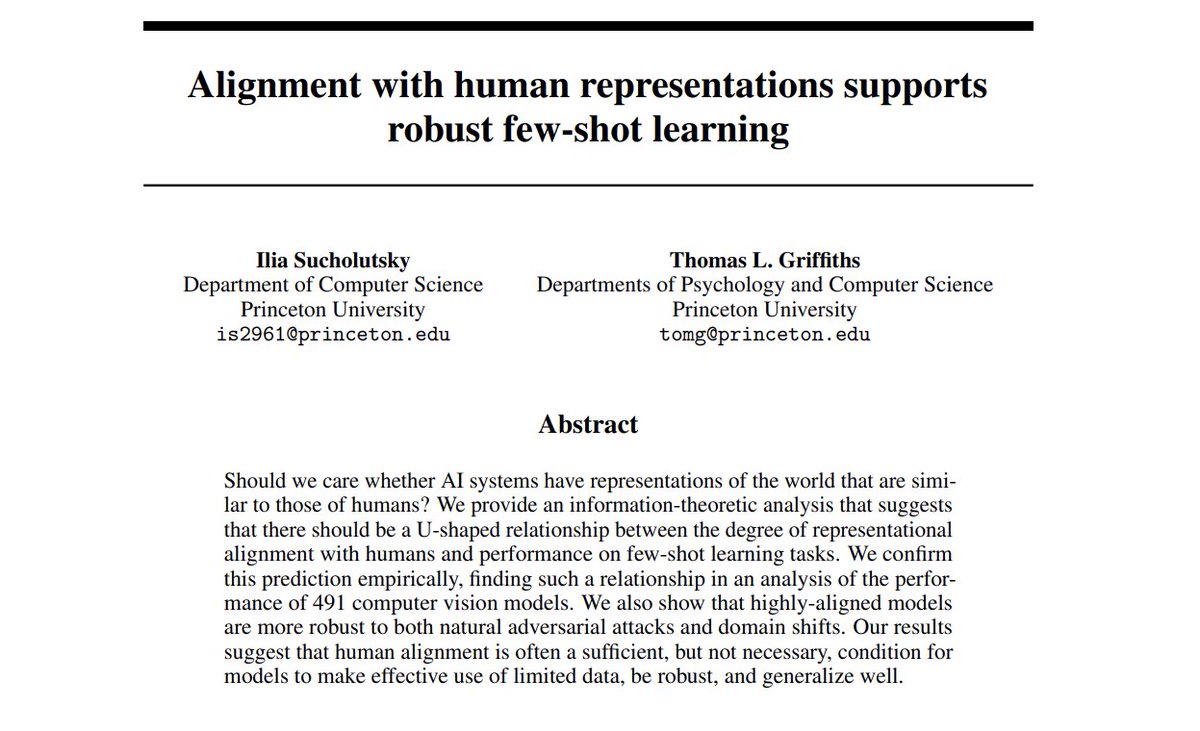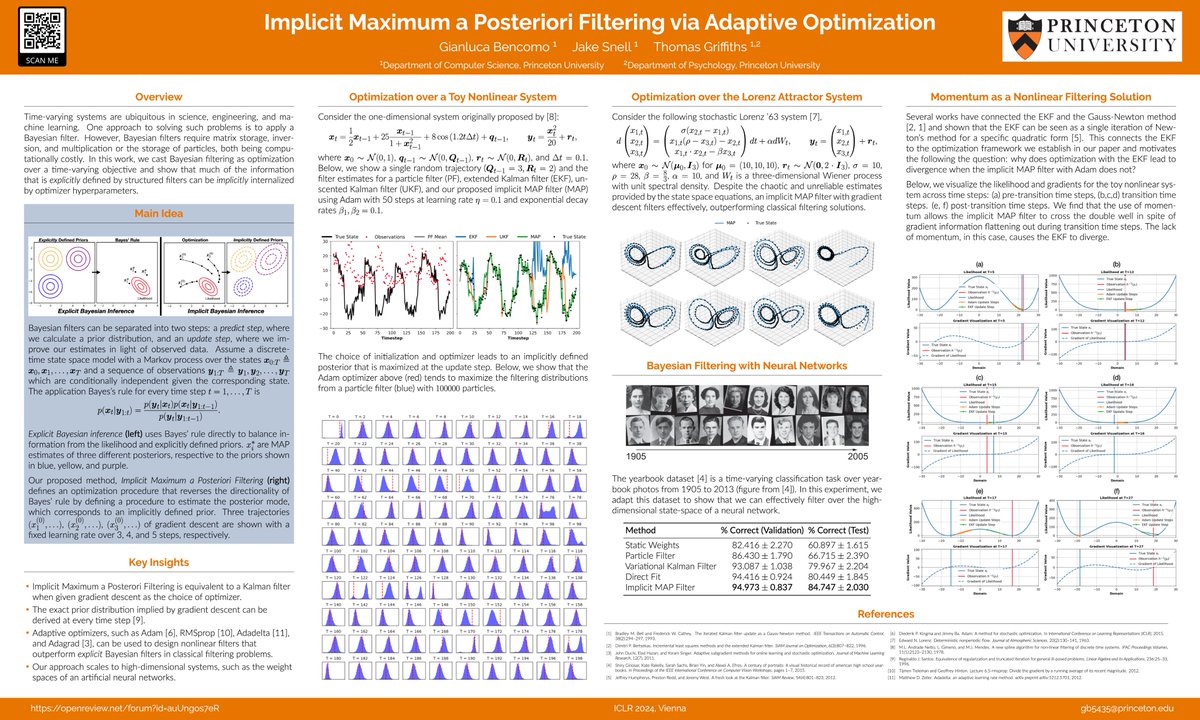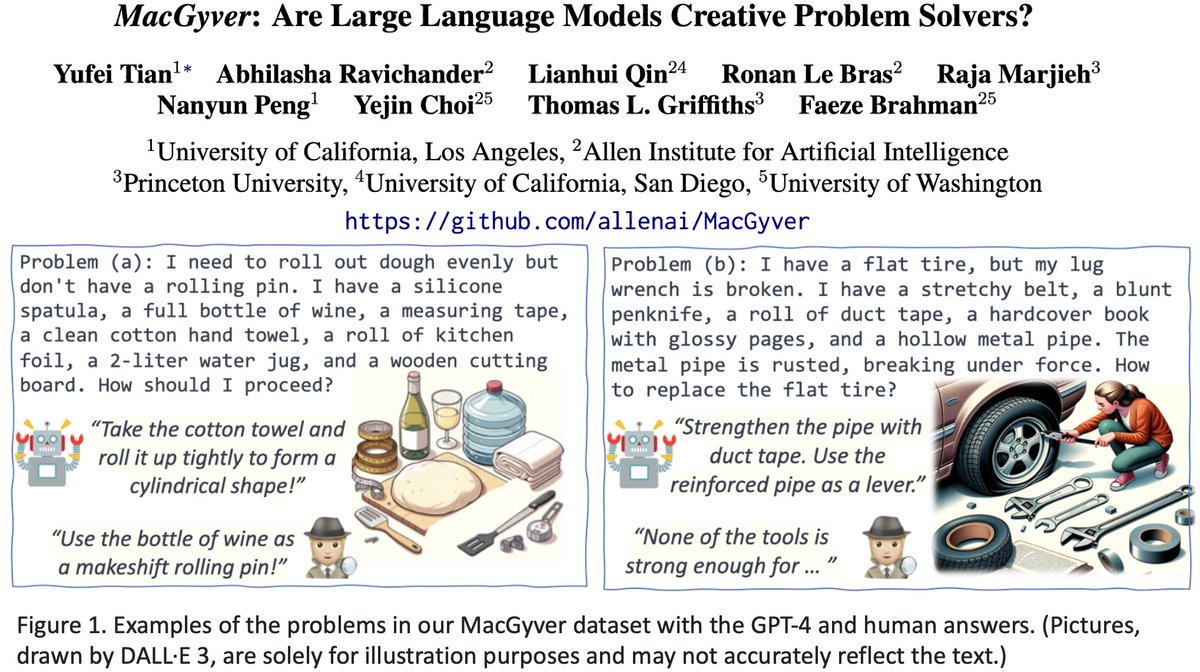
Griffiths Computational Cognitive Science Lab
@cocosci_lab
Tom Griffiths' Computational Cognitive Science Lab. Studying the computational problems human minds have to solve.
ID:1291487042921168898
http://cocosci.princeton.edu/ 06-08-2020 21:31:29
134 Tweets
4,0K Followers
130 Following




Princeton is hiring postdocs interested in projects focused on comparing AI systems to human cognition or using ideas from cognitive science to better understand those systems as part of a new initiative studying Natural and Artificial Minds. Apply at puwebp.princeton.edu/AcadHire/posit…



Do Large Language Models (LLM) have leadership? Together with cognitive scientists Tom Griffiths Griffiths Computational Cognitive Science Lab and Natalia Velez Natalia Vélez (natvelali @ 🧵/🟦/fediscience.org) at Princeton University, we created a multi-LLM-agent system to test if agents work better with a leader. It turns out that LLMs do have leadership,




New preprint w/ Fred Callaway Griffiths Computational Cognitive Science Lab
osf.io/preprints/psya…
We show that simulated data from cognitive models can be used to pretrain neural networks to infer an individual's preferences from their fixations.

Introducing Gaussian Process Probes (GPP) for probing and measuring uncertainty about concepts represented by AI models. #NeurIPS poster #1504 this Tue at 5pm!
Paper: arxiv.org/abs/2305.18213
Joint work with Alexander Ku, Jason Baldridge, Tom Griffiths Griffiths Computational Cognitive Science Lab and Been Kim (General Chair-ing ICLR2024 ✈️)


🧵 Excited to share another new paper with Griffiths Computational Cognitive Science Lab, accepted as a spotlight at #NeurIPS2023 ! 🎉 We delve into the intriguing intersection of AI and human cognition, exploring how alignment with human representations impacts few-shot learning tasks.🧠🤖🎓 Let's unpack this!👇


